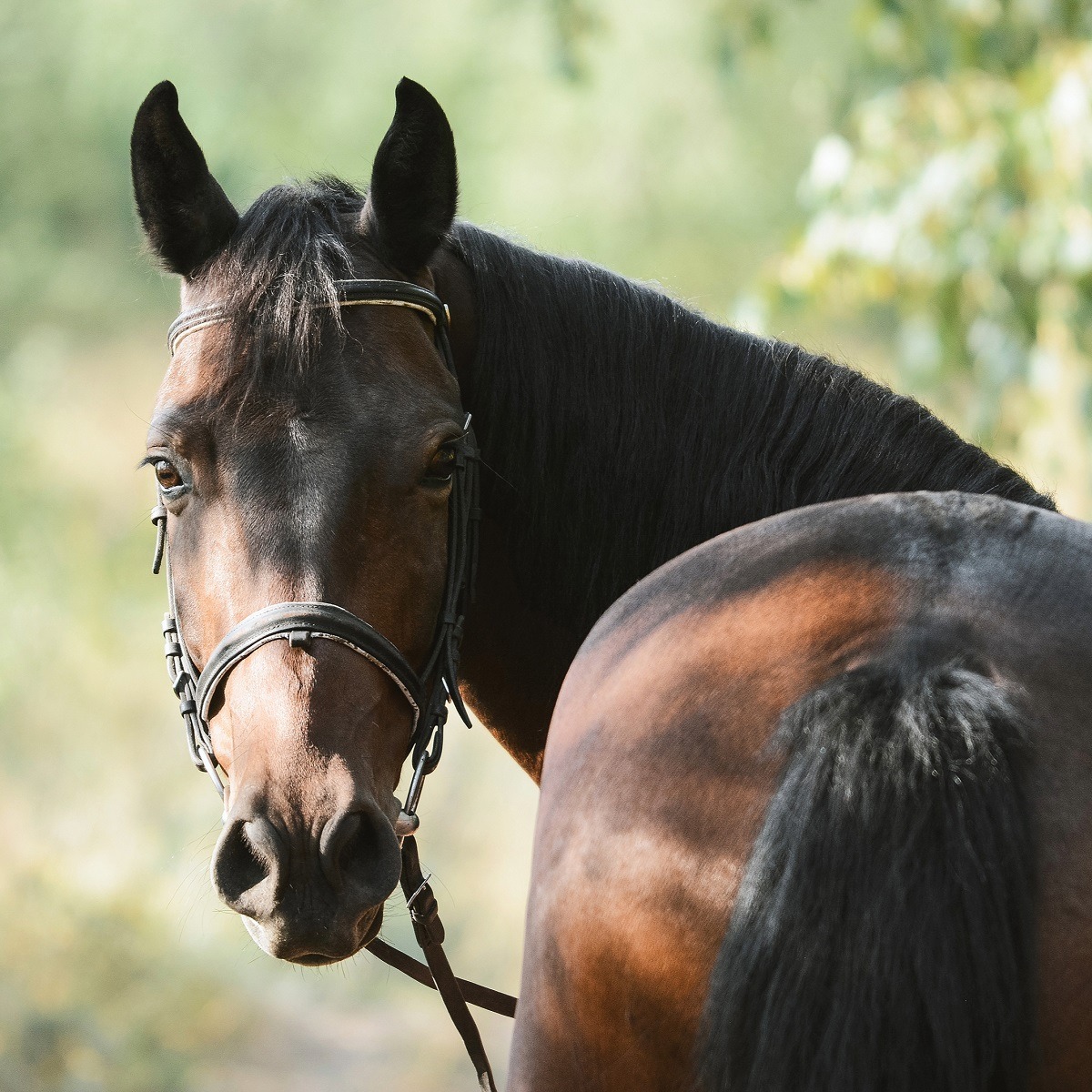
As I make my way through social media, taking the pulse of horse owners and their thoughts on horse insurance, a common post reads something like, “Hey hive mind – I’m thinking about insuring my new horse. Any thoughts?” Responses range from recommendations to warnings, and there is almost always the person who states unequivocally that horse insurance isn’t worth the time, trouble, cost, or hassle, and just plain can’t be trusted.
So, if you’re on the fence about insuring your horse, let me head off the naysayers (or is it, “neigh”sayers) with some of the most common horse insurance questions, answered!
How Expensive is Equine Mortality Insurance?
Cost ranks as the most common misconception. The general assumption that insuring the average horse is just not affordable. A common comment we hear after creating a quote is, “That’s not as much as I thought it would be.”
The annual premium for a Full Mortality horse policy (life insurance and theft, and usually with some amount of coverage for Colic Surgery expenses) is based on a rate. The rate is a percentage of the horse’s insured value, and determined by the horse’s breed, age, sex, and use.
Dollars and Sense: When looking for a quote, find equine insurance agents who work with multiple insurance companies. Those relationships give them access to competitive rates and coverages so they can find a policy that fits your needs for both coverage and cost. Look for someone who 1) is willing to answer your questions promptly and clearly; 2) responds to emails and calls in a timely manner; and 3) will confirm that coverage is in place until the actual insurance policy is sent to you.
Our Marshall+Sterling Equine Insurance team works with several carriers. These relationships make us one of the most flexible and competitive agencies in the country. For a Show/Pleasure (no jumping) horse through age 14 and insured for a value of $10,000, the rate for Full Mortality coverage begins at 3.0-3.7% of the insured value, for an annual mortality premium of $300-$370.
Other examples for horses 2-14 years old: Rates for Dressage horses range from 2.9%-3%, and Reining and Cutting horses start at 3%. For Show Hunter/Jumpers, Barrel Horses, and Roping horses, rates range from at 3.25-3.7%. Eventers start at 3.9%.
The companies we work with also offer Full Mortality policies that include an endorsement for up to $5,000 of free Emergency Colic Surgery (ECS) coverage. The exact amount depends on the horse’s insured value and the insurance company offering the coverage. The free ECS coverage is only available for horses without a history of colic or gastrointestinal issues.
Pro Tip: It’s important to find an agent who is also an experienced horse person. Someone who knows the difference between combined driving and combined training. And who understands conditions from EPM to OCD, and recognizes breeds from the Arabian to the Zangersheide. You want someone who understands your passion.
Even if I can afford Mortality coverage, will adding the Equine Medical & Surgical Insurance be too costly?
While Mortality is your starting point, most horse owners also want some amount of Medical/Surgical coverage as well.
Annual coverage limits of $5,000, $7,500, $10,000 and $15,000 are available, depending on the insurance company and the horse’s age, use, and insured value. Annual premiums for these endorsements start at $250, increasing as the coverage limits increase.
The Math
A policy for a Show/Pleasure horse, age 2-14, insured for a Full Mortality at a $5,000 value with a $5,000 Medical/Surgical endorsement could cost as low as $413 a year. Depending on the company, a Mortality policy for a $10,000 Dressage horse with $10,000 Medical/Surgical coverage could cost as low as $825. In addition, insurance companies offer installment plan options to make several payments over time.
Get a Customized Quote: It takes just a minute to request a Quote online, or you can give our office a call at (844) 320-8060.
Can I get Comprehensive Equine Medical & Surgical Insurance for a horse with a lower value?
Over the last several years finding insurance companies that offer comprehensive combined Medical & Surgical coverage for horses valued under $20,000 has become increasingly difficult. At Marshall+Sterling we have access to markets that will either offer the more comprehensive Medical & Surgical coverage regardless of insured value, or with a relatively minimal insured value requirement. Many agencies only work with companies that offer the more restrictive Surgical Only, Catastrophic Medical, or Accident Only endorsements for more economically valued horses.
Coverage Content
Comprehensive Medical/Surgical endorsements respond if your horse suffers an injury, illness, lameness, accident, or disease during the policy period. Typically these endorsements cover expenses for diagnosis and treatment of lamenesses, surgically or medically treated colics (even a colic that only requires medical treatment for a day or two at the vet hospital can still easily run into the thousands of dollars), blunt force traumas and lacerations, puncture wounds, gastric ulcers, and diagnosis and treatment of conditions and diseases ranging from EPM and Lyme Disease to melanomas and respiratory infections. Deductibles, Co-insurances, and Sub-limits may apply. Our Protect Your Horse and Equine Insurance FAQ pages have more details.
How much paperwork is it to apply to insure a horse? Do I need a vet certificate?
The only paperwork required for most sound and healthy horses is an application completed by the owner. Vet certificates are usually only required if the horse is to be insured for a value higher than $100,000, is older (usually over 16 or 17), or has a history of significant health problems.
Applications can be electronically completed, signed, and emailed back to us (or faxed or snail mailed). So in a lot of cases less than five minutes of paperwork and the click of the Send button is all it takes to get a policy in place, providing the application is complete and there are no underwriting issues.
Payment is not required up front since it is the paperwork and underwriting approval that allows coverage to be bound. That gives you time to make payment to either the insurance company directly or to our office. Payment can be made by check, or most credit or debit cards, with installment plans generally available.
If I make a claim, will the insurance company raise my rates or refuse to renew my horse’s insurance next year?
In most cases, a claim does not result in a non-renewal of coverage. Underwriters understand bad luck and the nature of horses, and seldomly make knee-jerk decisions. In most cases they offer renewal, and rate increases are not applied based on a claims history.
That being said, horse insurance policies are 12-month property/casualty policies, and unlike most human health insurance policies, pre-existing conditions are excluded. This means that if the horse develops a health problem during the policy year, if you renew your policy it is likely that an exclusion for that problem will apply to the new policy and any future policies. That said, most policies include varying types of extensions of coverage that may help protect you for a specific condition for a period of time after the policy expires.
The good news: Depending on the condition, underwriters will typically try to be specific as to exclusion wording. And for conditions that are not permanent or chronic or put the horse at higher risk for further illness or injury, they may consider reviewing exclusions down the road and potentially removing them.
BONUS POINT
If my horse has never colicked/taken a lame step/been sick a day in his life, I don’t need horse insurance, do I?
Hopefully that streak will continue, but in our experience many claims happen to horses with uneventful health histories. They have never colicked—until the night they end up in surgery. Or they have never been lame until the day a pasturemate decides to play rough. Or they find the one groundhog hole in their paddock.
With that in mind, putting into perspective all the time, money, and effort that we put into our horses, who we consider members of our family, and the fact that we insure all our other major investments-trucks, trailers, houses, farms–adding your horse to that list is something to consider. We’re happy to help with an emailed Horse Insurance quote or over the phone at (844) 320-8060 whenever you’re ready!
Author Bio
A lifelong equestrian starting out in 4-H and then moving on to show hunters, eventing, and dressage, Amy J. Daum has three decades of experience in the equine insurance industry. A founding partner of Broadstone Equine Insurance Agency, she joined Marshall+Sterling six years ago when M+S acquired Broadstone, and has since served as M+S’s Equine Marketing & Sales Supervisor.
This piece is intended for general information purposes and is not an example of coverage.
